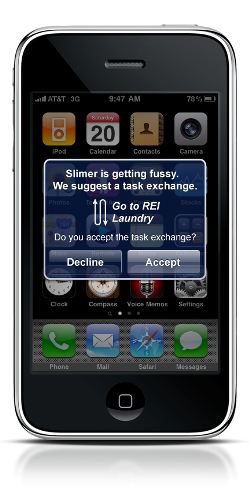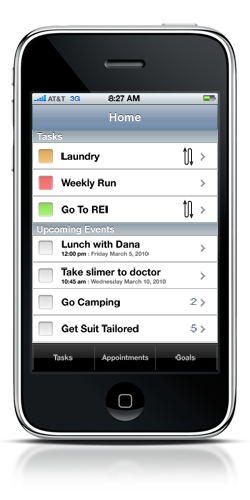 Summary
Summary Research Research |
 Synthesis Synthesis |
 Design Design |
 Demo Demo |

CareWear
Design |
Alerts |


CareWear alerts the parent when significant health changes have been sensed. Since CareWear is constantly listening for data from the sensors that the parent and child wear, it can automatically generate alerts about changes in schedule or necessary attention to health matters.
CareWear suggests a task exchange when the sensors detect low emotional or physical health in either the toddler or the parent. A task exchange is when CareWear recognizes that the health of the parent or child is not optimal for a certain situation, such as long grocery store shopping trips. The application looks at what other tasks remain and suggests that the parent consider doing an alternative task. This allows the parent to continue accomplishing errands while also being able to plan ahead for unpredictable behaviors from the toddler.
Above is an example of switching grocery shopping with laundry. Since the toddler is not feeling well, it is more productive to go home and get some tasks accomplished than to continue trying to deal with a wailing toddler in a grocery store.
This alert appears even when CareWear is not open on the user's phone and functions without the user opening the application, so it is less invasive.
The application alerts the user when it suspects a physical illness, when it senses a major mood change that may affect the parent's ability to accomplish certain tasks, and when it suspects that parent may be not caring for the toddler in the optimal way (trying to put the toddler down for a nap in the morning).